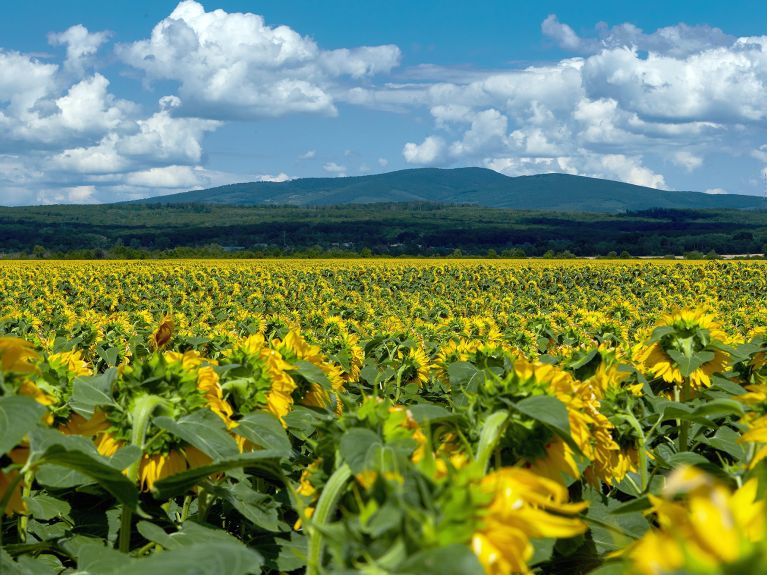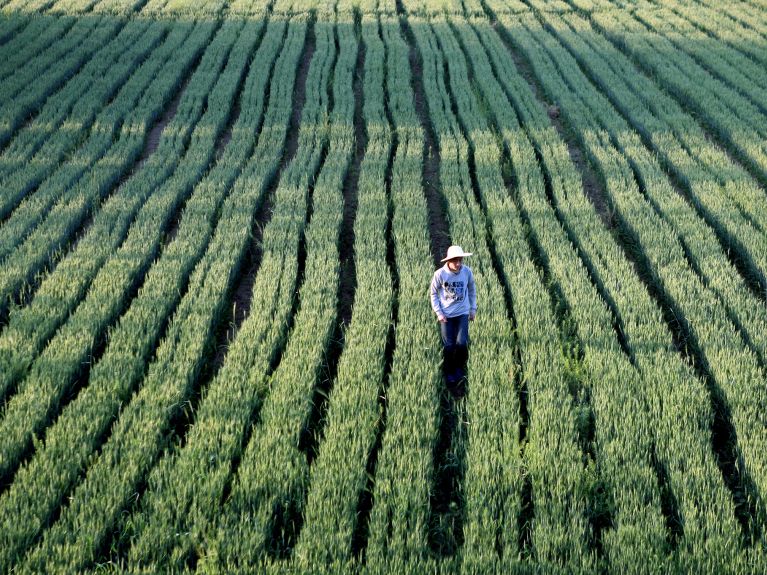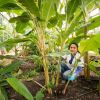“Organic farming, as quickly as possible”
How Germany is helping other countries to develop sustainable and efficient agriculture.

Germany’s sustainable and efficient agriculture and food industry is regarded as a model for success in many parts of the world. For this reason, the Federal Government has been supporting other countries in the development of efficient, resource-friendly and entrepreneurial agriculture for almost 30 years. The so-called Transform Programme was launched in 1992 with the aim of introducing central and eastern European states to market economy structures. Since 2008 this bilateral co-operation programme has also been addressing partner countries in Europe, Africa, Asia and South America. Today, a dozen countries are partners in the co-operation programme run by the Federal Ministry of Food and Agriculture (BMEL). There are three countries and three areas of emphasis.

Seeds in Ethiopia
“Ethiopia is the first country in Africa that the Federal Ministry of Food and Agriculture has actively supported in the development of sustainable and regionally adapted agriculture,” says Michael Stübgen, Parliamentary State Secretary of the BMEL. The main focus is the maintenance, characterization and conservation of indigenous genetic resources and their sustainable use in co-operation with the gene bank and the Ethiopian Institute of Agricultural Research. This also includes the breeding of improved seed, and the appropriate seed propagation in small-farm cooperatives. In addition, the programme is designed to promote mechanization and productivity in agriculture. Federal Minister Julia Klöckner will be travelling to Ethiopia in October 2019 to see for herself what progress is being made.

Climate protection in China
“China is an important partner in the fight against climate change,” says State Secretary Michael Stübgen, “because China is not only the most populous country on earth. It also has 300 million farmers, and this makes the country particularly vulnerable to interactions between climate change and agriculture.” In June 2019, Mr Stübgen and his Chinese counterparts signed a memorandum of understanding for greater co-operation in the areas of climate change and climate adaptation. A German-Chinese team of experts will now be joining forces to develop technical guidelines and recommended political action for climate-friendly approaches in the utilization of soil and water. Another strand of work is concentrating on environmentally and climate-friendly livestock farming. In June 2019, Federal Minister Julia Klöckner saw how effectively Germany and China are working together in the development of sustainable cultivation methods.
Organic farming in Ukraine
“We have a special organic farming project in Ukraine,” says State Secretary Michael Stübgen. “After all, Germany has by far the highest demand for organic products in the EU. And Ukraine has a strong interest in exporting organic products to Germany. But the quality needs to be right.” That means the packages must contain what is stated on the outside. This will require new laws and regulations, certification and quality control systems, and managers will need to know the specifications for organic production methods. “You see,” says Mr Stübgen, “countries that are interested in organic farming want to implement things as quickly as possible - things that have been developed in Germany and Europe over decades. Our project work can provide useful support in this respect.”
You would like to receive regular information about Germany? Subscribe here:


